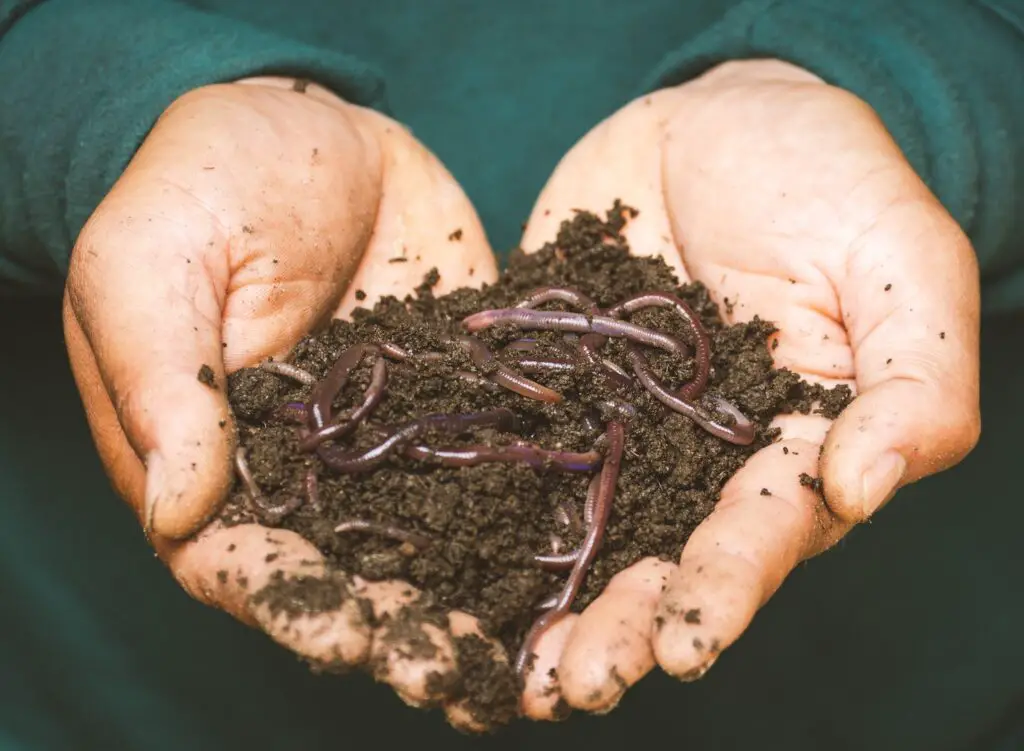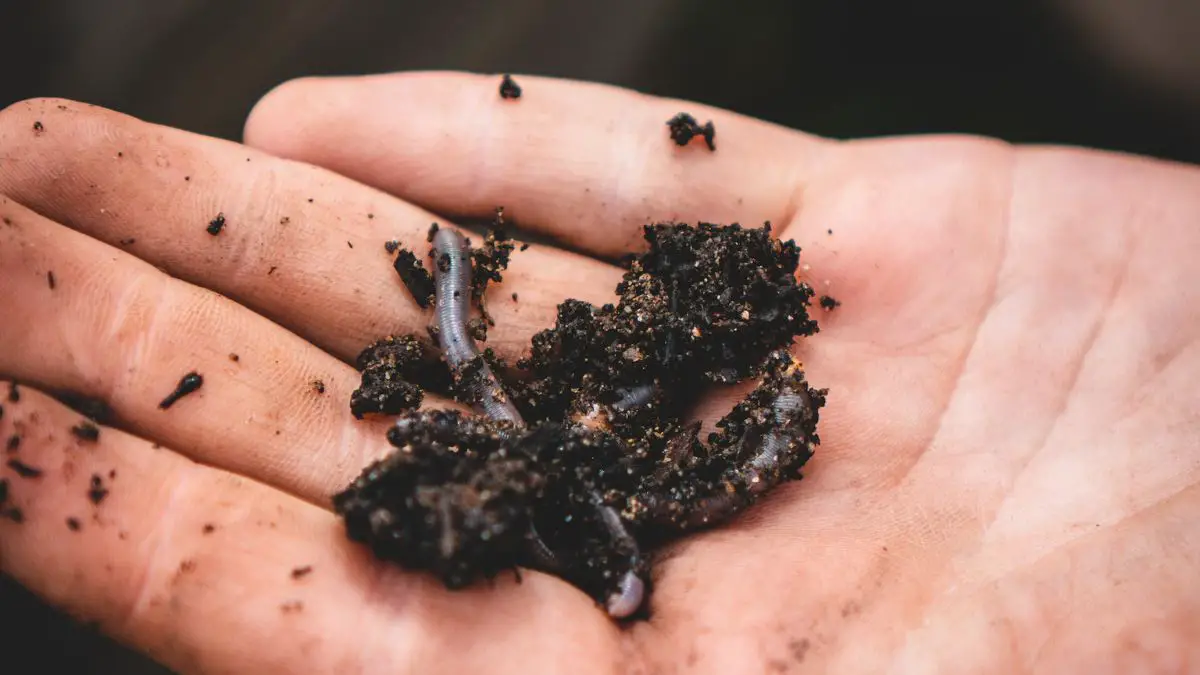Some links on this page may contain affiliate links which means that, if you choose to make a purchase using the link, Agricfy.com may earn a small commission at no extra cost to you. For more information, go to our Affiliate Disclosure Page!
Do you have a passion for raising poultry birds and want to protect their well-being? I’ve got you covered!
Learn the crucial techniques to successfully deworm your chickens and enhance their general health.
In this article, you will be equipped with all the information you need to protect your birds, from recognizing typical infestation indicators to using secure and organic deworming procedures.
As you read on, you will get to understand the life cycle of parasites, and also, gain insightful knowledge about preventative measures, and develop your treatment delivery skills.
More importantly, you’ll learn from experts’ guidance, tried-and-true methods, and helpful suggestions that will enable you to maintain a thriving and durable chicken coop.
Overview
Fresh eggs and a charming addition to your backyard can be obtained by raising chickens, which can be a gratifying task.
But it’s crucial to deal with potential health issues like worm infestations if you want to keep your flock healthy.
Maintaining your chickens’ freedom from these dangerous parasites depends heavily on deworming.
Understanding Worm Infestation
It’s critical to understand the nature of worm infestations in hens before going into the particulars of deworming.
Worms, or parasites as they are more often known, can live in different regions of a chicken’s digestive tract and hurt it by robbing it of nutrition and harming the gut lining.
It goes without saying that worm infestations in chickens are a frequent and frequently ignored issue that can have a big impact on the well-being and production of your flock.
Because of this, it’s crucial for you to comprehend the nature, lifetime, and potential effects of these infestations in order to manage and prevent them successfully.
Lifecycle of Parasitic Worms
Roundworms, tapeworms, and cecal worms are a few parasitic worms that afflict chickens. Each has a unique life cycle with several stages.
To adopt successful deworming methods, it is essential to comprehend their lifecycles.
Egg Stage: Adult worms inside the chicken’s digestive tract often lay eggs at this stage of the lifecycle. In the chicken’s feces, these eggs are later eliminated.
Larval Stage: After leaving the chicken’s body, the eggs grow into larvae in their surroundings.
While foraging or pecking in contaminated environments, chickens may consume these larvae.
Migration and Maturity: After being swallowed, the larvae move to various locations in the chicken’s digestive tract where they mature into adult worms.
By vying for nutrients and altering the intestinal lining, they can then harm the body.
Potential Consequences of Worm Infestations
Numerous detrimental impacts on your chickens might result from worm infestations. A worm infestation in your chicken may have the following impacts, to name a few:
Nutrient Depletion: Worms eat the nutrients meant for your chickens, depleting their supply and causing malnutrition and stunted growth.
Young chicks, which need a lot of nourishment for normal development, can be particularly harmed by this.
Reduced Egg Production: Your chicken’s ability to produce eggs will be negatively impacted by a worm infestation.
Worms frequently have an adverse effect on the health of the chicken, which can stop it from laying eggs. Your hens might lay fewer eggs as a result, and the eggs they do lay might be of worse quality.
Impaired Immune System: Worm infestation can significantly weaken your chick’s immune system, which can leave you feeling frustrated and regretful.
Actually, persistent worm infestations can weaken the chicken’s immune system, making them more prone to various illnesses and disorders.
Damage to the Gut Lining: The actual existence of worms and their movement within the intestines can irritate, inflame, and harm the gut lining.
You might run at a significant loss and become frustrated if this is not handled correctly.
Detecting Worm Infestations
You may identify worm infestation indications by keeping a close eye on your hens. Watch out for these warning signs:
Lethargy and Weakness: Worm-infested chickens may display signs of weakness, sluggish behavior, and decreased activity.
Weight Loss: Despite eating normally, a rapid loss in body weight may indicate that the chickens’ nutrients are being taken away by worm infestations.
Reduced Appetite: Worm infestations in chickens can impair the birds’ capacity to digest and absorb nutrients, which might result in decreased interest in food.
Diarrhea and Abnormal Droppings: Chickens with the infection may experience diarrhea or have abnormal droppings.
Pale Combs and Wattles: Anemia brought on by blood-sucking worms can result in pale combs and wattles.
Importance of Routine Deworming
The importance of routine deworming is emphasized by being aware of the potential effects of worm infestations. You can reduce the hazards brought on by these parasites by including deworming in your flock management program.
Never lose sight of the fact that a successful flock begins with a thorough grasp of potential health issues and the preventative measures needed to address them.
Therefore, deworming your chickens at the proper intervals helps break the worm lifecycle and keeps their numbers from rising to dangerous levels.
Let’s now look at why deworming your chicken is very important.
Improved Egg Production and Quality
As a result of their energy being diverted away from egg-laying when your chickens are parasite-ridden, they lay fewer eggs and produce shells that are of worse quality.
Thankfully, deworming frees your chickens from this energy-sucking burden, allowing them to focus their efforts on producing a plentiful supply of high-quality eggs.
Prevents Weight Loss and Stunted Growth
As I previously mentioned, parasite infestation in hens can impede growth and, as a result, may hamper potential.
Deworming, however, releases these anchors, preventing weight loss, encouraging healthy growth, and enabling your chickens to thrive and realize their full potential.
Strengthens Their Immune System
Worm infestation causes serious harm to your chickens, which is something you should be aware of. Your chickens are more vulnerable to a variety of illnesses as a result of it lowering their immune system.
Deworming, on the other hand, serves as a powerful barrier, boosting your chickens’ resistance and protecting them from the onslaught of pathogens.
Determining the Perfect Time to Deworm Your Chickens
It takes more than enough food and a comfortable coop to keep a flock of hens healthy. Understanding their needs is key, and understanding when to deworm them at the right time is a crucial part of that.
Deworming your chickens at the appropriate periods ensures their health and protects them from the dangers of parasite infestations.
The Early Vigilance
Just imagine you’ve just welcomed a flock of cuddly, fluffy chicks into your brooder. Young chicks are particularly susceptible to worm infections despite being little and appearing innocent.
They are easy prey for parasite invaders due to their immature immune systems. Consequently, if you don’t want to suffer a tragic loss, you must now pay careful attention to your chicks.
The ideal time to deworm your baby chickens is when they are 2 to 3 weeks old. You’re laying the groundwork for a healthy, worm-resistant flock by starting deworming during this critical developmental stage.
Naturally, these early measures aid in preventing infestations from taking hold and guarantee that your chicks have a good start in life.
Customized Deworming According To Individual Indications
Take a moment to visualize carefully monitoring each chicken’s behavior as you go through your coop. Some are animated and vivacious, while others come across as a little dull. Your deworming options can be influenced by the clues provided by specific hens.
Because of this, it is important to act when you see a chicken exhibiting symptoms of a worm infestation, such as weight loss, decreased egg production, or pallor.
Don’t wait for a large-scale outbreak; start your deworming medication right now. You are actively putting the welfare of each member of your flock first by adjusting your strategy in response to individual signs.
Seasonal Approach: Spring and Fall Deworming
More than anything else, as a lover of poultry, you ought to pay attention to how the seasons change as they affect your flock of chickens.
While the fall ushers in a time of preparation, spring brings the world back to life. Not only should you change your attire throughout these transitions, but they also present excellent chances to deworm yourself strategically.
Dormant parasites come to life as the spring season unfolds its bright hues. The environment becomes a worm breeding ground as a result of rising temperatures and more moisture.
In order to stop the cycle before it gets out of hand, you should take advantage of this time to deworm your hens. Your flock will have a fresh start to thrive in the rebirth of nature thanks to springtime deworming.
Finally, October arrives with its brisk air and descending leaves. Your chickens’ focus switches as they get ready for the winter months to ensure their survival and well-being.
The peak time for worm larvae is in the fall, so don’t be fooled by their coziness. By deworming your chickens in the fall, you’re protecting them from any infections during the chilly winter that lies ahead.
Types of Worms in Chickens

Knowing the different worm species that can infect hens is essential for fighting worm infestations successfully.
- Roundworms (Ascarids): Ascarids, often known as roundworms, are among the most prevalent internal parasites in poultry. In extreme circumstances, they can even result in intestinal obstructions. They can also result in stunted growth.
They can be seen in chicken excrement or as long, spaghetti-like worms that are evident in feces.
A chicken’s exposure to other affected chickens can also cause roundworm infection.
- Tapeworms: Tapeworms are segmented, flat worms that adhere to the gut walls of chickens.
Long-term infestations can cause malnutrition and a weakened immune system even if they don’t present with early, severe symptoms.
Chicken eggs can contain tapeworms as well.
Though tapeworms typically do not physically harm the intestinal lining, they deprive the bird of nutrients, making it weak, pallid, emaciated, and more prone to other illnesses.
- Eye worm: The parasitic nematode known as the eyeworm, Oxyspirura mansoni, is found on or behind the chicken eye.
Eyeworms can be caught by eating infected cockroaches or by coming into contact with infected wild birds. The term “eyeworm” is also used to describe Oxyspiruriasis.
It is possible to see chickens scratching their eyes. Additionally, their eyelids could be glued shut or swollen and red. They will eventually go blind in the diseased eye if not given the right care.
- Gapeworm: The nematode parasitic on the trachea (windpipe), Syngamus trachea, is known as the gapeworm. Small, vividly red, Y-shaped worms are known as gapeworms.
Due to their diet of chicken blood, worms are typically crimson. Worms can clog a bird’s trachea in severe infestations.
Chickens pick up gapeworms from other infected chickens, wild birds, and by consuming earthworms, snails, or slugs.
It is possible to observe infected hens stretching their necks out, shaking their heads, breathing through their mouths, and gasping, grunting, coughing, or wheezing.
- Capillary worm/threadworm: The chicken’s crop, esophagus, mouth, or upper intestines are home to capillary worms, which are little, hair-like worms that measure around 1/4 inch in length.
Several Capillaria species can infest chickens; they are nematode species. On the chicken, each species infests a certain anatomical region.
It is possible for infected chickens and earthworms to transmit capillary worm infestations to hens.
- Coccidia: Coccidia are tiny protozoa that can lead to coccidiosis, a parasite condition that affects the intestines.
Symptoms of coccidiosis in chickens include bloody diarrhea, lethargy, and slowed growth.
Every kind of worm has a unique life cycle and means of transmission. You can modify your deworming strategy to efficiently target these worms by being aware of their unique traits.
Choosing the Right Deworming Products
There are different deworming options to pick from, from synthetic remedies to all-natural alternatives.
Chemical Dewormers: Chemical dewormers are generally offered as medicated feed or water additives and are made to get rid of particular parasite species.
However, it’s critical to carefully follow dose directions to prevent under or over-dosing. They can also be quite effective. Levamisole and fenbendazole are two common chemical dewormers.
Natural Deworming Alternatives: If you’d like to treat your worm infestations holistically, there are a number of natural treatments that have shown potential.
A finely powdered substance formed from fossilized algae is diatomaceous earth, for instance. Worms are eliminated as a result of the exoskeleton of the worms being damaged when consumed.
You can handle worm infestations using a variety of alternative techniques as well as without the use of chemicals.
The natural remedies that are listed below should be given a go. Many poultry enthusiasts have put them to the test.
Garlic: The anti-parasitic potential of garlic is well established. The overall health of the hens can be improved by adding crushed or minced garlic to their meal.
Pumpkin Seeds: Research has demonstrated the anti-parasitic properties of the amino acid cucurbitacin, which is found in pumpkin seeds.
Adding pumpkin seeds to the feed after grinding or smashing them can help control parasites.
Apple Cider Vinegar: Apple cider vinegar is a well-liked natural treatment that helps support a healthy digestive system and deter worm infestations.
The drinking water for the chickens could benefit from a minor addition.
Developing A Deworming Schedule
For the flock’s continued health and to avoid the emergence of worm resistance, it’s crucial to establish a well-organized deworming regimen.
Rotational Deworming: Rotational deworming is a useful tactic for preventing parasites from developing resistance to a particular treatment. It entails switching between various classes of dewormers on a regular basis.
According to the advice of your veterinarian, this method entails using a different dewormer each time you treat your flock.
Sample Schedule For Deworming:
Month 1: Fenbendazole (a chemical dewormer)
Diatomaceous earth, a natural dewormer, is used in month four.
– Week 7: Levamisole (chemical dewormer)
– Month 10: Pumpkin seeds (natural dewormer).
You can lower the chance of parasites acquiring resistance and maintain ongoing effectiveness by switching up the dewormers and procedures you employ.
How to Deworm Your Chicken
To ensure their efficacy and the welfare of your chickens, it’s imperative to know how to properly administer dewormers. Listed below are a few approaches you can take.
Measurement of Dosage
To avoid under or over-dosing, which could compromise the effectiveness of your medication and injure your flock, it is imperative to calculate the proper amount.
Some drugs need to be taken according to weight. Most of these dosages will be given in metric units, such as 10 mg/kg.
As a result, you must weigh your bird. Get a precise weight as best you can. The simplest way to do this is to weigh the bird while it is within a box or other container, deduct the weight of the container, and then weigh the bird again.
To determine the proper dosage based on the size and weight of your chickens, you should, however, seek advice from your veterinarian.
Administration Procedures
Dewormers can be administered orally, as well as through medicated feed, water additives, and other means. For the right way to administer the medication, follow the directions included with it.
To ensure that each bird receives the right dosage, dewormers can be mixed with a meal or water.
However, it is crucial to avoid injecting medication into the birds’ tracheas (the holes in their tongues) while administering medications orally.
Repeat And Rotate Medications
Most worm medicines require a second dose to be taken, usually between 10 and 21 days later, depending on the medication.
The first dose kills adult worms but not worm eggs. The juvenile worms that hatched are killed by the second dose.
Just keep in mind that the birds will get infected again if you skip the second dose.
Rotating worm treatments are advised. If you treat cecal worms with fenbendazole, a subsequent infection should be treated with a different drug, such as Levamisole.
With fenbendazole, a third infection might be cured. Rotating treatments lessens the possibility of the worms developing drug resistance.
Due to their close resemblance, fenbendazole, albendazole, and oxfendazole shouldn’t be rotated together.
Safety Precautions
Wear safety clothing, such as gloves, when handling dewormers, and stay away from getting the products directly on your skin. Dewormers should be kept in a secure location away from kids and animals.
Additionally, follow the dewormer packaging’s instructions regarding withdrawal periods before eating eggs or meat from treated birds.
Humans may have negative effects from eating eggs with minute levels of dewormer. Selling eggs with even minor amounts of the drug in them is likewise prohibited.
Additionally, ingesting these eggs may mix with some prescription drugs or result in allergic responses (if the consumer has a reaction to the dewormer that was used).
For worm treatments, the majority of groups advise a 14-day egg withdrawal; I often advise 25.
Conclusion
According to what we’ve said in this essay, responsible chicken ownership includes deworming. Furthermore, it is a satisfying responsibility to maintain the health and well-being of your chickens.
To ensure the production and lifespan of your flock, regular deworming in conjunction with good management methods is essential.
You may construct a strong deworming plan that helps your homestead’s chickens thrive and be happy by recognizing the symptoms of worm infestations, picking the best deworming solutions, creating a smart schedule, and putting preventative measures into action.
It’s important to remember that successful deworming is a lifelong endeavor that calls for awareness, education, and dedication to the well-being of your flock.
You may profit from a healthy and thriving flock of chickens by taking preventative measures and making wise decisions.
I hope you found this guide helpful. Do share your thoughts with us by filling out the “Leave A Reply” form below.







